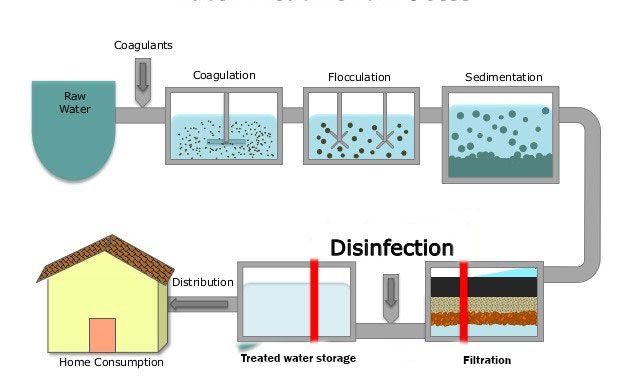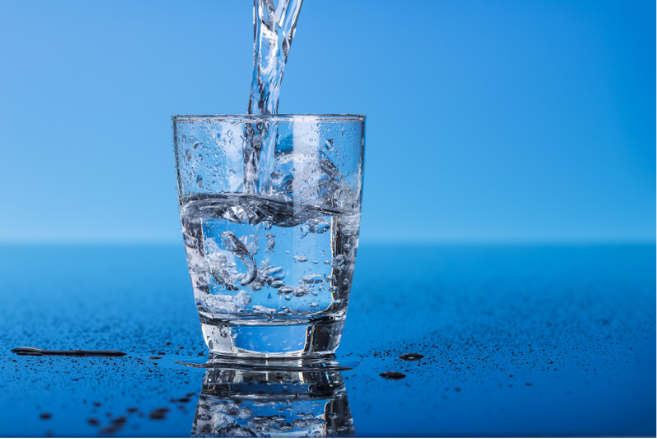Why a Water Purification System is Essential for Every Home
Why a Water Purification System is Essential for Every Home
Blog Article
Why a Water Purification System Is Important for Clean, Safe Water
Accessibility to clean, risk-free water is a fundamental human right and a foundation of public health. Nonetheless, the presence of hazardous impurities such as virus, hefty steels, and chemical pollutants in our water raises serious worries regarding health and wellness and well-being. A water purification system stands as a crucial remedy to reduce these dangers, ensuring that individuals and neighborhoods can access secure drinking water. Understanding the ins and outs of these systems and their numerous methods is vital, specifically as we take into consideration the ramifications for health and wellness end results and environmental sustainability in our everyday lives.
Importance of Tidy Water
Accessibility to clean water is a basic necessity for human wellness and wellness. It is essential for maintaining life, sustaining hygiene, and maintaining total public wellness. Water Purification System. The schedule of safe alcohol consumption water substantially decreases the risk of waterborne illness, which present a substantial risk to neighborhoods worldwide. Contaminated water can cause severe health problems, including intestinal illnesses, cholera, and dysentery, specifically in vulnerable populations such as children and the senior.
Furthermore, tidy water is critical for cleanliness and hygiene practices, which are vital in stopping the spread of transmittable conditions. Ample water supports proper hygiene facilities, advertising a healthier setting. In addition, accessibility to secure water affects socioeconomic aspects, as it allows areas to take part in commercial and agricultural activities, inevitably adding to economic advancement.
In lots of regions, the lack of tidy water intensifies hardship and inequality, more preventing progress towards sustainable development objectives. Ensuring access to tidy water is not only a public wellness crucial however additionally a cornerstone for social equity and economic development. Efforts to enhance water top quality and framework have far-reaching benefits, cultivating much healthier neighborhoods and boosting lifestyle.

Usual Contaminants in Water
Making certain the schedule of tidy water is weakened by different pollutants that can jeopardize its safety and quality. The presence of pathogens, such as bloodsuckers, germs, and viruses, poses considerable wellness threats, specifically in areas lacking sufficient hygiene. These microbes can lead to waterborne conditions, resulting in serious disease and even death.
Chemical impurities additionally offer an important worry. Hefty metals, consisting of arsenic, lead, and mercury, commonly enter water materials through industrial discharges or corroded pipes. These compounds can accumulate in the body in time, resulting in long-term health and wellness issues such as neurological damages and developmental conditions.
Furthermore, farming runoff introduces chemicals and fertilizers into water supply, which can interfere with environments and negatively effect human health. Nitrates, frequently found in plant foods, can cause major conditions like methemoglobinemia, specifically in infants.
Advantages of Water Purification Solutions
Identifying the essential demand for safe alcohol consumption water, water filtration systems provide a myriad of advantages that improve public health and wellness and ecological sustainability. Primarily, these systems successfully get rid of harmful impurities, including bacteria, viruses, heavy metals, and chemicals, guaranteeing that the water consumed is devoid of pathogens and contaminants. This reduction in contaminants considerably lowers the danger of waterborne diseases, promoting total area health.
Along with health and wellness advantages, water filtration systems add to environmental sustainability by decreasing dependence on bottled water, which often produces too much plastic waste. By making use of a filtration system, households can lower their carbon footprint and add to a much more sustainable ecological community. These systems can enhance the taste and odor of water, making it more palatable for day-to-day consumption.

Various Types of Filtration Methods

One common method is reverse osmosis, which makes use of a semi-permeable membrane layer to different water from liquified solids and impurities. This process efficiently decreases contaminations, consisting of heavy steels and chemicals. An additional extensively utilized strategy is ultraviolet (UV) disinfection, which employs UV light to reduce the effects of viruses and microorganisms, making them harmless without the usage of chemicals.
Triggered carbon filtration is one more prominent approach, making use of carbon to read what he said adsorb organic compounds, chlorine, and undesirable odors, improving taste and smell top quality. Distillation, a process that involves boiling water and condensing the vapor, successfully removes minerals and contaminants however may call for even more power compared to various other methods.
Ion exchange is frequently made use of to soften water by replacing calcium and magnesium ions with sodium or potassium ions. Each method has its restrictions and advantages, making it necessary to comprehend their performances and effectiveness in attending to details water quality issues - Water Purification System. Ultimately, choosing the ideal filtration technique is crucial for ensuring tidy and safe drinking water
Choosing the Right System
Selecting a proper water filtration system needs mindful find out consideration of different factors, consisting of the details pollutants existing in the water system, the quantity of water needed, and the preferred purification technique. First, it is necessary to perform a water quality test to identify impurities such as microorganisms, heavy steels, or chemical toxins. This details will guide you in choosing a system that effectively targets those specific impurities.
Next, evaluate your home's daily water usage to establish the system's capability. Solutions are available in different sizes, from point-of-use filters for drinking water to whole-house units that cleanse all water entering your home.
Furthermore, take into consideration the purification approach that finest fits your demands. As an example, reverse osmosis is highly reliable for getting rid of a wide variety of impurities, while UV filtration is excellent for removing microorganisms.
Conclusion
In conclusion, the application of water filtration systems is essential for making sure accessibility to safe and tidy water. By understanding the relevance of clean water and the benefits of various purification methods, areas can make educated choices to secure their health and advertise socioeconomic stability.
Recognizing the crucial requirement for risk-free drinking water, water filtration systems supply a myriad of advantages that boost public health and environmental sustainability.In addition to health benefits, water filtration systems add to ecological sustainability by reducing dependence on bottled water, which commonly produces excessive plastic waste. Eventually, the fostering of water purification systems is an aggressive action toward guaranteeing tidy, risk-free water for future generations while safeguarding public health and wellness and the environment.
Selecting an ideal water filtration system requires careful factor to consider site of numerous elements, including the details contaminants present in the water supply, the quantity of water required, and the desired filtration technique.In verdict, the application of water filtration systems is crucial for ensuring accessibility to clean and risk-free water.
Report this page